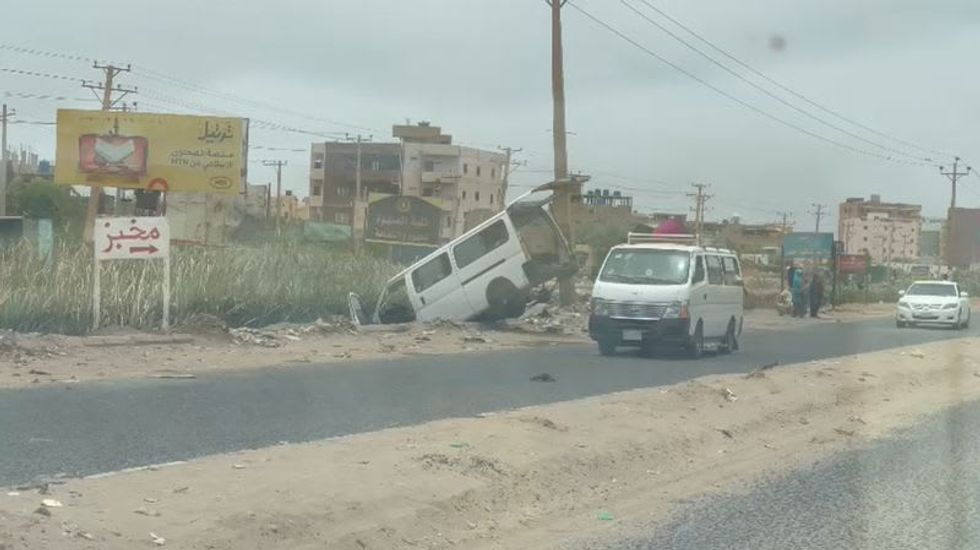KHARTOUM Crisis: A City on the Brink
Unrest Continues Despite Ceasefire Extension
Fighting could be heard in Khartoum early on Monday despite a supposed ceasefire extension and the United Nations warned of a humanitarian “breaking point” as clashes between rival military forces entered a third week. Hundreds of people have been killed and thousands wounded since long-simmering tension between the Sudanese army and the paramilitary Rapid Support Forces (RSF) erupted into conflict on April 15. Both sides agreed on Sunday to extend the ceasefire, but the sound of gunshots and explosions still reverberated through the city.
Roots of the Conflict
The conflict in Khartoum has deep roots in the political divisions and power struggles that have plagued Sudan for decades. The RSF, originally formed from the Janjaweed militias accused of committing atrocities in the Darfur region, has grown in power and influence in recent years. The Sudanese army, on the other hand, represents the remnants of the former regime ousted in a 2019 popular uprising. Tensions between these two forces came to a head following a failed coup attempt in which the RSF played a controversial role.
The people of Khartoum have borne the brunt of this power struggle, with reports of indiscriminate shelling, looting, and human rights abuses on both sides. The city, once known for its vibrant culture and historical landmarks, now stands on the brink of a humanitarian disaster.
Impact on Individuals
For the residents of Khartoum, the ongoing conflict means daily uncertainty and fear. Many have been forced to flee their homes or seek shelter in overcrowded displacement camps. Basic services such as healthcare, food, and clean water are in short supply, putting vulnerable populations at risk. The psychological toll of living in a war zone cannot be overstated, as people struggle to cope with the trauma of violence and loss.
Global Ramifications
The crisis in Khartoum has far-reaching implications beyond its borders. Sudan’s strategic location at the crossroads of Africa and the Middle East makes it a key player in regional politics and security. Instability in Sudan threatens to spill over into neighboring countries, exacerbating existing conflicts and creating new flashpoints for violence.
Moreover, the humanitarian crisis unfolding in Khartoum demands a swift and coordinated international response. The United Nations and other aid agencies are struggling to deliver assistance to those in need, as access to conflict-affected areas remains limited. The world cannot afford to turn a blind eye to the suffering of the Sudanese people, whose lives hang in the balance.
Conclusion
The situation in Khartoum is a stark reminder of the human cost of political instability and conflict. As the city teeters on the brink of collapse, the international community must act decisively to prevent further bloodshed and alleviate the suffering of innocent civilians. The people of Khartoum deserve peace, security, and a chance to rebuild their lives in the wake of this crisis.





